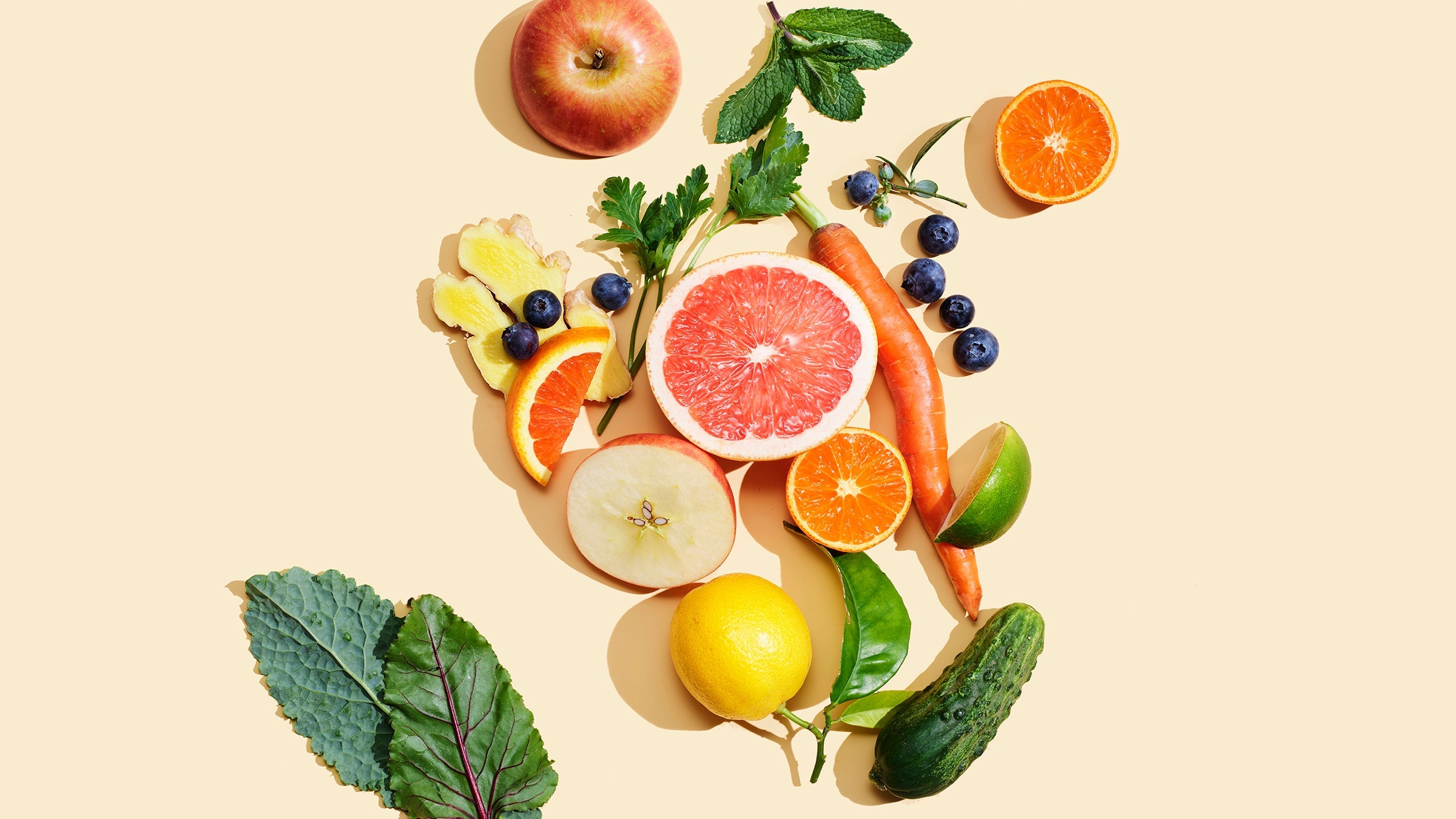Can Eating More Fruits and Vegetables Reduce Stress?

(Photo: Maren Caruso/Getty Images)
When you want to lower your stress and anxiety, there’s all kinds of things you can try: yoga, meditation, therapy, a long run in a beautiful place. But have you tried changing your diet? A new study has shown that fruits and vegetables are some of the best foods that reduce stress and anxiety.
The research, out of Edith Cowan University in Western Australia, studied more than 8,600 adults. People who ate at least 16.8 ounces of fruit and vegetables daily had 10 percent lower stress levels than those who consumed less than 8.2 ounces. Yes, that means you should be aiming to eat slightly more than a pound of fruit and vegetables everyday. (The World Health Organization recommends 400 grams per day, which comes out to slightly more than 14 ounces.)
The importance of fruits and vegetables in a healthy diet are well-known: The foods that come from the earth are some of the best for lowering blood pressure, improving heart health, and steadying blood sugar levels. And while the connection between our diet and mental health is just now being explored, the researchers believe nutrient content plays a big role.
“Vegetables and fruits contain important nutrients such as vitamins, minerals, flavonoids, and carotenoids that can reduce inflammation and oxidative stress, and therefore improve mental wellbeing,” said lead researcher Simone Radavelli-Bagatini.
Some stress is considered normal, and stress levels ebb and flow, but long-term exposure can significantly impact mental (and physical) health.
“Long-term and unmanaged stress can lead to a range of health problems including heart disease, diabetes, depression, and anxiety so we need to find ways to prevent and possibly alleviate mental health problems in the future,” said Radavelli-Bagatini.
If boosting your fruit and vegetable intake can do that, it’s worth a shot. So how do you make sure you’re eating enough of these magical foods that reduce stress and anxiety? A pound a day may seem like a lot, but here are some of our favorite ways to get in more vegetables throughout the day. And consider this open season on snacks: Eating fresh fruit for snacks is a great idea pre- and post-workout as a way to boost energy while avoiding anything processed.
Specific Fruits and Veg That Help Lower Stress and Anxiety
While variety is one of the most important things to focus on when it comes to getting enough healthy foods in your diet, here are some of the most studied foods and their nutrients to help your stress levels.
Leafy Greens
Leafy greens (spinach, kale, Swiss chard, collard green) are rich in magnesium. In mice, anxiety-related behaviors were linked to diets that were low in magnesium, a mineral that’s important for tons of bodily functions. And while it’s readily available in supplement form, it’s important to remember that the body absorbs nutrients best from whole foods.
Asparagus
One of our favorite vegetables to oven-roast, asparagus has been linked to lowered anxiety. (The research is strong enough that the Chinese government approved asparagus extract to be used in functional foods.)
Citrus
Brightly colored, sweet-tart citrus fruits such as oranges, clementines, lemons, and limes contain six out of the eight B vitamins, which have been found to benefit stress levels.
Apples
If you haven’t had an apple a day in awhile, it might be a good time to start. The high levels of antioxidants may help lessen the symptoms of anxiety (anxiety is thought to be correlated with a lowered total antioxidant state).
From Women’s Running
RELATED: The 5 Best Dried Fruits to Add to Your Diet
Get more of what you love from VT. Follow us on Instagram, Facebook, and Twitter.